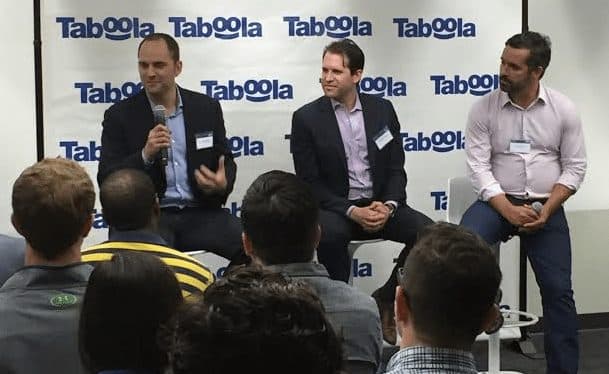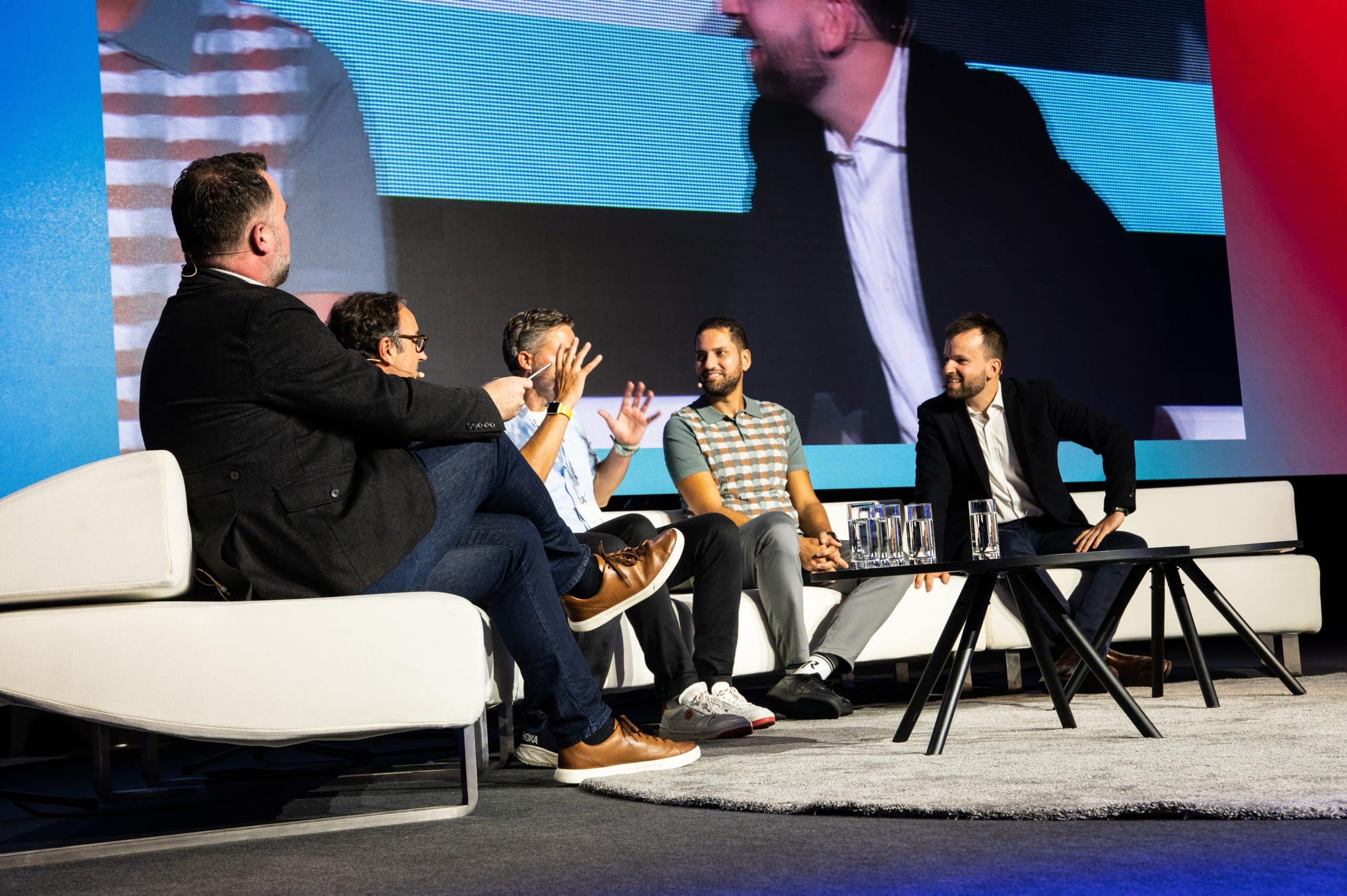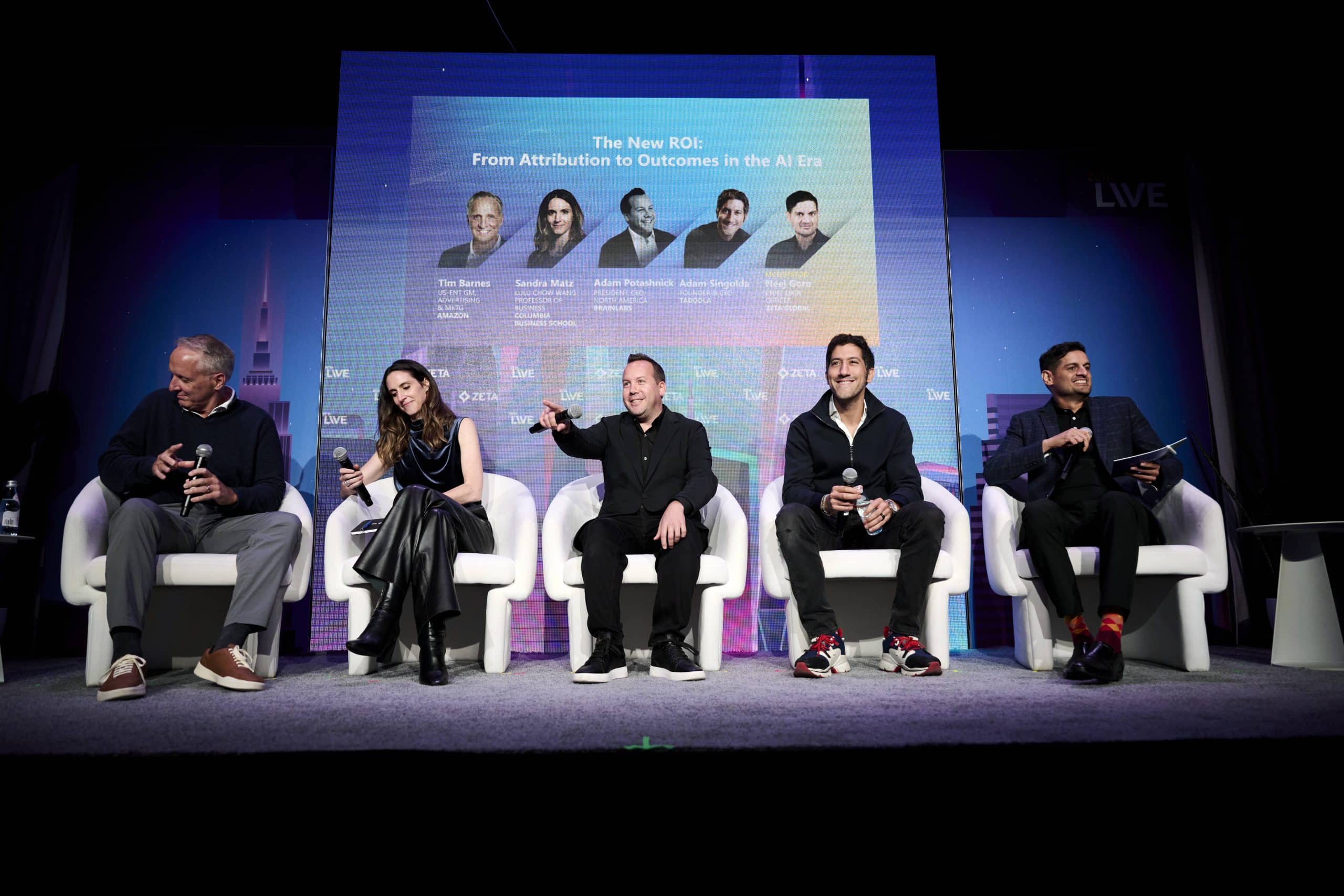Sports fans are some of the most voracious consumers of digital content on the web today. Nielsen’s “Year in Sports Media Report,” published earlier this year, found that fans consume close to eight hours of sports-related content each week. These habits are particularly pronounced on mobile, where fans use sports-related apps twice as much as the average user, and time spent in such apps have jumped 210% in the last year (according to data from eMarketer/Flurry).
With such an engaged audience, the sports industry provides an interesting lens through which to view many of the ongoing trends in the digital media space. To learn more about how some of the industry’s leading companies approach these topics, we hosted our latest Taboola Talks on “Tackling Sports in the Digital Era: How Technology is Changing the Game.”
Joining us for a special panel discussion was Troy Ewanchyna, Vice President and GM of NBCSports.com, and Blake Stuchin, Director of Digital Media Business Development at the NFL. The event was hosted at Taboola’s global headquarters in New York City, with over 110 attendees gathering to learn more about how two of the sports industry’s leading companies think about and balance the transition from traditional media towards digital.
TV Is Far From Dead, And Live Events Are Growing
Despite calls from industry analysts that “cable-cutting” is on the rise, both Blake and Troy affirmed that TV remains a dominant force in the media industry. Troy mentioned the formidable size of traditional broadcast businesses, including NBC Sports’ parent company Comcast, which reports $12 billion in revenue each quarter.
And while consumers shift more of their media viewing to services like Hulu and Netlfix, Blake explained that live events represent a category of broadcast programming that is actually growing. Evidence of this trend can be seen in the popularity of high-profile reality TV and award shows that continue to attract record-breaking audiences, and live sports accounts for a significant portion of this segment. Blake noted that 45 of the top 50 most-watched fall programs last year were NFL games.
Livestreaming: Opportunity or Threat?
Ever since home broadband connections could support high-quality streaming video, many sports fans have wondered if it’s just a matter of time before games will be livestreamed across the web. But for companies like the NFL and NBC Sports, whose core businesses are heavily intertwined with existing broadcast deals, such a prospect can be tricky.
Blake explained that most of the NFL’s current revenue comes from TV licensing, which means the league must be strategic about exploring livestreaming opportunities, in order to protect their existing business. One way his team has been able to limit this risk is by experimenting with exclusive opportunities or projects, such as the NFL’s partnership with Yahoo which will serve as the exclusive livestream partner for the league’s annual game in London on October 25th.
Troy recalled that NBC Sports has offered livestreaming products since 2009, and his team has also experimented with specific projects, such as NBC Sports’ partnership with YouTube in 2012 to stream the London Olympics.
While such initiatives used to be a differentiator, they are now becoming somewhat commoditized, and consumers increasingly expect to watch their favorite teams whenever and however they want. For companies like the NFL and NBC sports, livestreaming will require a careful balancing act over the next decade, one that the industry and consumers alike will be closely watching.
“Disruptive” Media Has Only Increased Live Viewership
Similar to the anxieties that often surround livestreaming, Blake reminded the audience of other “disruptive” offerings whose doomsday scenarios haven’t been fully realized.
When professional sports leagues began sharing “highlight” clips with news channels, people worried that no one would bother tuning into the live games anymore. A similar concern arose when the NFL introduced its RedZone offering, a free livestream that bounces between every NFL game on Sunday afternoons, broadcasting only the score-worthy moments when a team is approaching “touchdown” territory.
Despite insider predictions that new digital offerings may distract or detract from professional sports’ leagues core products, Blake noted that live viewership has only increased over the past two decades.
As sports companies experiment with new and innovative media, such as the NFL’s “behind-the-scenes” looks on Snapchat, or the rapid growth of online fantasy sports (NBC Sports has a strategic investment with daily fantasy sports company FanDuel), the smarter argument may be that such offerings only serve to strengthen team fandom and engagement. Rather than cannibalizing existing revenues, digital media may in fact be a necessary and strategic partner in growing those businesses over the long-term.



